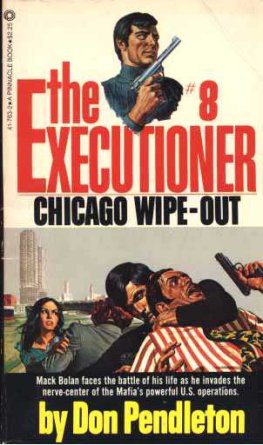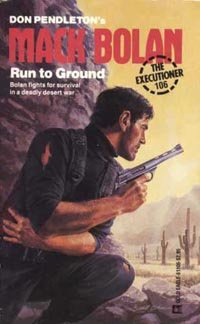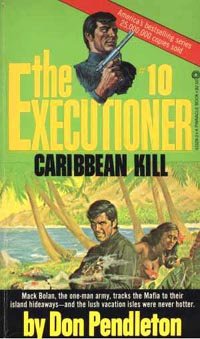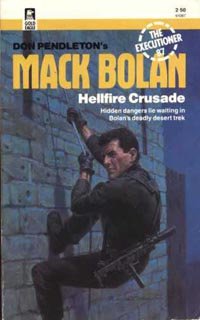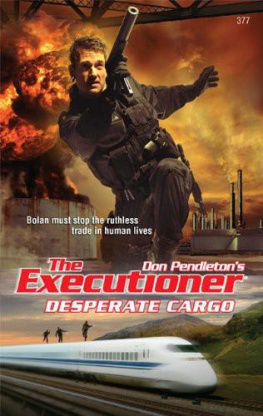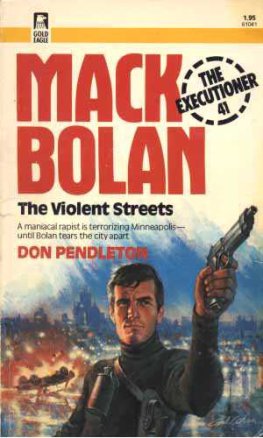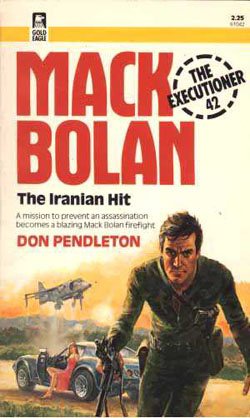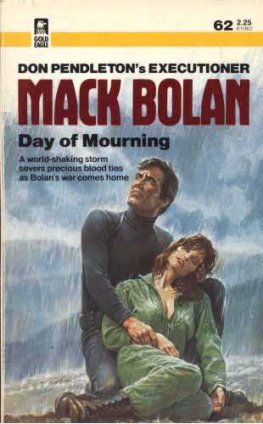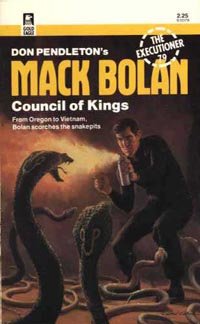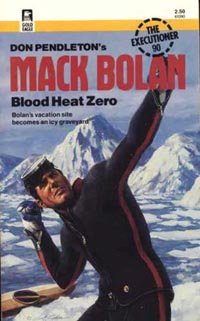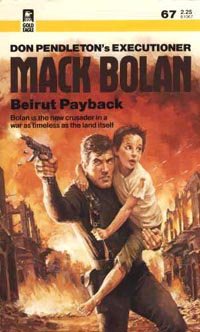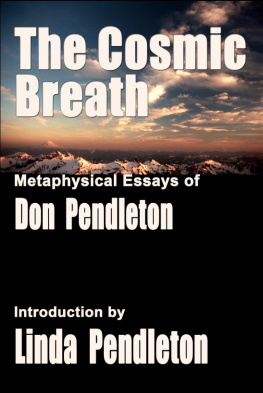Don Pendleton - Chicago Wipe-Out
Here you can read online Don Pendleton - Chicago Wipe-Out full text of the book (entire story) in english for free. Download pdf and epub, get meaning, cover and reviews about this ebook. genre: Detective and thriller. Description of the work, (preface) as well as reviews are available. Best literature library LitArk.com created for fans of good reading and offers a wide selection of genres:
Romance novel
Science fiction
Adventure
Detective
Science
History
Home and family
Prose
Art
Politics
Computer
Non-fiction
Religion
Business
Children
Humor
Choose a favorite category and find really read worthwhile books. Enjoy immersion in the world of imagination, feel the emotions of the characters or learn something new for yourself, make an fascinating discovery.
- Book:Chicago Wipe-Out
- Author:
- Genre:
- Rating:5 / 5
- Favourites:Add to favourites
- Your mark:
- 100
- 1
- 2
- 3
- 4
- 5
Chicago Wipe-Out: summary, description and annotation
We offer to read an annotation, description, summary or preface (depends on what the author of the book "Chicago Wipe-Out" wrote himself). If you haven't found the necessary information about the book — write in the comments, we will try to find it.
Chicago Wipe-Out — read online for free the complete book (whole text) full work
Below is the text of the book, divided by pages. System saving the place of the last page read, allows you to conveniently read the book "Chicago Wipe-Out" online for free, without having to search again every time where you left off. Put a bookmark, and you can go to the page where you finished reading at any time.
Font size:
Interval:
Bookmark:
Don Pendleton
Chicago Wipe-Out
Man's character is his fate.
HeraclitusPrologue
Mack Bolan knew what he was walking into at Chicago. There were no illusions of his own invincibility, and certainly no misjudgement of enemy power in this stronghold of organized crime. This was the city that the mob owned, the self-professed crime capital of the Western World, the locale of the mob's deepest entrenchment anywhere. And Bolan's challenge was knowingly hurled into the teeth of that vast empire which was characterized by The Chicago Tribuneas:
A world in which wrong is right in which all incentive for honor, justice, suppression of crime, and even fundamental discipline has disappeared from broad divisions of the police department, the courts, and the all-pervading political party machine that has a strangle-hold on Chicago proper.
What sort of man would single-handedly invade such a province of power with the intention of subduing it, of "shaking their house down," of breaking the chains which had held this city captive for decades? What motivates a man like Mack Bolan how does an ordinary young man become transformed into a methodical death-machine pledged to wholesale slaughter and unending warfare?
The truth of this particular case seems that, simply, there was no "transformation" Bolan appears to be the same man in Chicago that he was in Pittsfield, scene of his original confrontation with the Mafia. The same skills which had carried him safely through two years of combat in Southeast Asia were moving him through this new jungle of violence and terror. The same scorn of death that had accompanied him into deep penetrations of enemy territory in Vietnam had walked with him into theenclaves of syndicated corruption and criminal power.
It should not be concluded that Bolan was a "wild ass warrior" who recklessly stormed a superior enemy in suicidal attacks. He had a contempt for death, not for life. He did not fling his life into the hands of the gods and demand a safe passage; Bolan possessed a genius for warfare and had the combat instincts of a battle-hardened soldier. He also had a knack for equalizing the balance of power between himself and his enemies. This professional soldier was entirely human, and subject to all the dreams, desires and anxieties of any normal human being.
Perhaps the most revealing insight into the character of this warrior was provided by an ex-army buddy with whom he became re-involved during his French adventure. Wilson Brown told Bolan, at the height of the Riviera rampage, "You know, I guess what I dig about you, man, is your guts... you've got a weird combination there, Sarge tough guts and warm heart. Most cats don't know how to carry both."
Tough guts and warm heart, and indeed Bolan knew how to carry both at the same time. On many occasions in Vietnam he had jeopardized his own life and mission to provide emergency assistance to stricken villagers. Though he had earned his tag, The Executioner, through his proficiency as a military sniper, he had also been quietly recognized among local medics as Sergeant Mercy, the guy who seldom returned from a penetration strike without one or several wounded or sick Vietnamese civilians in his care, usually children.
This facet of Mack Bolan had carried over to his war on the Mafia. Though he was one of the most wanted "criminals" in America, he had never engaged police authority in a Shootout, and there is no record of harm befalling innocent bystanders as a result of an Executioner "hit." He planned his operations with great care to insure that only the deserving tasted his war. On various occasions, he broke off and retreated when it became obvious that such conditions could not be met; often these retreats were undertaken at great personal hazard.
In any composite picture of Bolan the man, a central and unshakeable fact emerges: this is a man responding to a high call to duty and with this response costing him everything that had ever held meaning for his life. No kill-crazy goon, no mentally-disturbed victim of combat-fatigue, no arrogant superman glorying in his power over life and death but an often wearied and frightened and lonely and continually harassed human being who was simply doing a job that needed doing. No zealot was Bolan his greatest enemies were his own self-doubts, which were often immense, and a frequently overpowering revulsion for this life of gore and terror.
His war had not begun on such a high plane, of course. It started as an act of simple vengeance. Bolan had been fighting the war in Vietnam when his mother, his father, and his younger sister suffered violent deaths at home, indirect victims of a Mafia loansharking operation. The grieving soldier returned home to bury his beloved dead and to learn that "the omnipotent outfit" was beyond the reach of the law. They were not, however, beyond the reach of this combat-tested "executioner." He remained in Pittsfield to take justice into his own hands in a cooly calculated campaign against the Frenchi Family, declaring, "I am not their judge. I am their judgement. I am their executioner."
The battle of Pittsfield (The Executioner: War Against the Mafia)left that Mafia arm a shambles and provided Bolan with deeper insights into the spreading menace of organized crime. In his personal journal, he had written: "It looks like I have been fighting the wrong enemy. Why defend a front line eight thousand miles away when the realenemy is chewing up everything you love back home? I have talked to the police about this situation and they seem to be helpless to do anything. The problem, as I see it, is that the rules of warfare are all rigged against the cops... what is needed here is a bit of direct action, strategically planned, and to hell with the rules. Over in 'Nam we called it a 'war of attrition.' Seek out and destroy. Exterminate the enemy. I guess it's time a war was declared on the home front. The same kind of war we've been fighting at 'Nam. The very same kind."
During the course of that "very same kind" of initial engagement, Bolan rejected the protection of a sympathetic police official and vowed unending warfare against "this greater enemy." It is problematical whether or not Bolan's vow could have strongly influenced the course of his life from that point. The fact of the matter was that the syndicate had also declared Bolan dead. His name was entered upon a Mafia death certificate, or "contract," with a face value of $100,000. It was open season on Mack Bolan and the big hunt was on, with every ambitious hood and freelance gunman in the country anxious to collect the bounty. So even without a personal commitment to battle the Mafia kingdoms, Bolan would have been forced into a purely defensive mode of warfare, with lifelong flight or imprisonment as the alternatives.
While rationalizing his own position and formulating an offensive posture, Bolan allowed his jungle instincts to take over. He faded from the scene of original combat and resurfaced shortly thereafter in Los Angeles with his battle plans firmly in mind, and he recruited a squad of former combat buddies to carry this war to the new enemy. It was to follow this battle plan: "We'll hit the Mafia so fast, so often, and from so many directions they'll think hell fell on them. We steal, we kill, we terrorize, and we take every Goddamn thing they have. Then we'll see how powerful and well organized they are." (The Executioner: Death Squad.)
But Bolan's challenge was not only accepted by the enemy it was taken up also by the Los Angles Police Department, and the Los Angeles battles became a personal tragedy which also revealed the full scope of this seemingly futile contest against insurmountable odds. Only partially victorious, Bolan again faded resolving to never again involve others in his private war with the syndicate and again he was alone, desperately seeking to evade police dragnets and with all the hounds of hell baying along his trail.
Font size:
Interval:
Bookmark:
Similar books «Chicago Wipe-Out»
Look at similar books to Chicago Wipe-Out. We have selected literature similar in name and meaning in the hope of providing readers with more options to find new, interesting, not yet read works.
Discussion, reviews of the book Chicago Wipe-Out and just readers' own opinions. Leave your comments, write what you think about the work, its meaning or the main characters. Specify what exactly you liked and what you didn't like, and why you think so.

